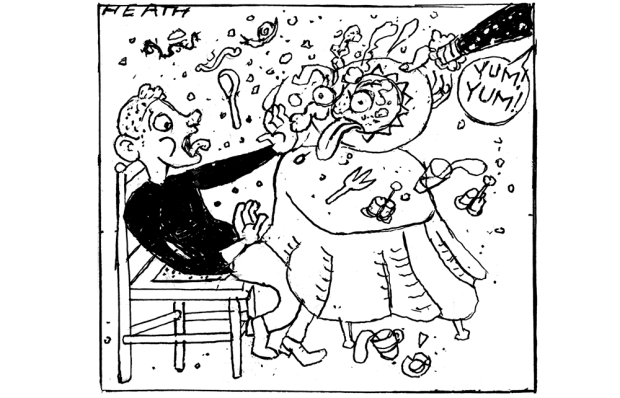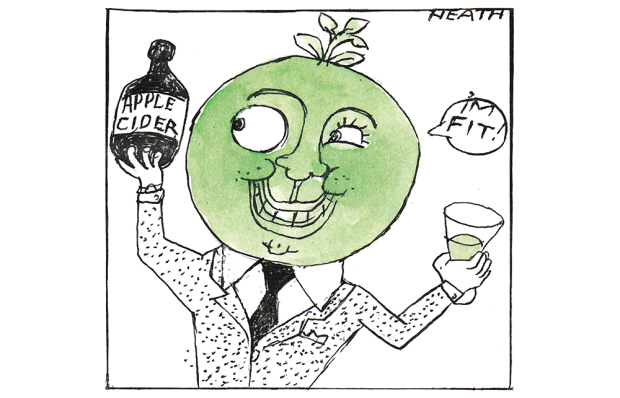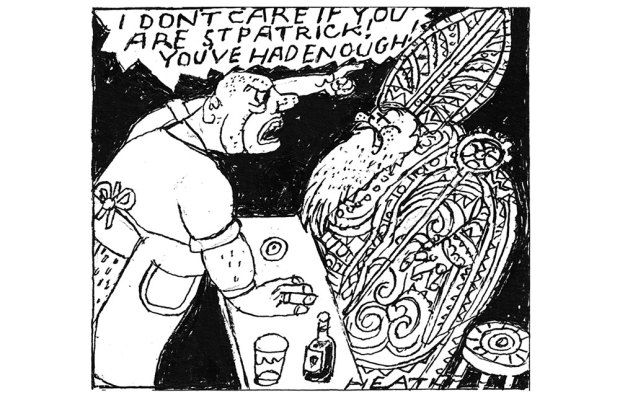It’s that time when publishers flood bookshops with celebrity memoirs. We all know a sleb autobiography is rarely the work of the celebrity, but the ghostwriter is not the only anonymous voice at work – an indexer can play a quietly subversive part too.
One of my favourite index moments is in Shaun Ryder’s autobiography (Twisting My Melon – of course!), towards the end of the S’s: ‘sinus problems, 2; splitting up with Denise, 63; splitting up with Felicia, 320; splitting up with Oriole, 295; splitting up with Trish, 246-7; sunburnt in Valencia, 141-2; teeth, 327-8; thyroid problem, 320, 326; UFOs seen, 33-4.’
Teeth, UFOs, hypochondria, and failed relationships on a doomed, never-learn loop. Of course, it is part of the nature of an index – the arbitrariness of alphabetical order – to bring together curious juxtapositions. Items and events separated by time are forced to rub along together. But the Shaun Ryder index is so arch it is hard to resist the conclusion that there was a deliberate arrangement.
An index that mocks its subject isn’t a new concept. The first example can be found at the back of Dr Bentley’s Dissertations on the Epistles of Phalaris, Examin’d (1698), a takedown of the King’s librarian. The authors used the index as a kind of hyper-abbreviated character assassination: ‘his egregious dullness, p.74, 106, 119, 135, 136, 137, 241’, ‘his pedantry, from p.93 to 99, 144, 216’ and ‘his familiar acquaintance with books that he never saw, p.76, 98, 115, 232’.
The device caught on. In 1700, an anonymous pamphlet attacked the quackery that had begun to appear in the Royal Society’s journal. Its snarky index directs readers to: ‘Picking the Ears too much, Dangerous, p.15’, and ‘Mr Ray’s definition of a Dildoe, p.11’.
In 1705, the Tory William Bromley ran for Speaker of the Commons. A decade earlier, Bromley had taken the Grand Tour and subsequently published his travel memoirs. Three days before the election, a new edition of Bromley’s travelogue appeared, identical to the first but this time with an index.
The index singles out moments when Bromley is a little too familiar with Catholics (‘The Author kiss’d the Pope’s Slipper and had his Blessing, p.149’) as well as plenty of examples of the young author stating the obvious or offering banalities: ‘Parmesan Cheese from the dominions of Parma, p. 77’, ‘Pavements of Brick, or broad Stones, convenient for walking on, p. 68’ and ‘Eight Pictures take up less Room than Sixteen of the same Size, p. 14’. Bromley lost the election and raged against the sneering index, assuming (correctly) that the anonymous author was the incumbent Speaker.
For the next decade or so, many other attack indexes pressed at the weak spots in their rivals’ publications. A century later, the Whig historian Thomas Macaulay whispered a dying wish to his publisher: ‘Let no damned Tory index my History!’
Indexes in today’s celebrity memoirs are more whimsical than cruel. In the back pages of Joan Collins’s My Unapologetic Diaries, my attention was drawn to ‘Johnson, Boris, a vocal way with a kitchen implement, 281’, and ‘Prince Andrew, ducks a question about after-dark logistics, 231’.There is a knowingness at play thata isn’t quite serious and isn’t quite Joan. These days I try not to judge books by their covers; I judge them by the index.
The post The whimsy – and casual cruelty – of the memoir index appeared first on The Spectator.
Got something to add? Join the discussion and comment below.
Get 10 issues for just $10
Subscribe to The Spectator Australia today for the next 10 magazine issues, plus full online access, for just $10.
You might disagree with half of it, but you’ll enjoy reading all of it. Try your first month for free, then just $2 a week for the remainder of your first year.














Comments
Don't miss out
Join the conversation with other Spectator Australia readers. Subscribe to leave a comment.
SUBSCRIBEAlready a subscriber? Log in